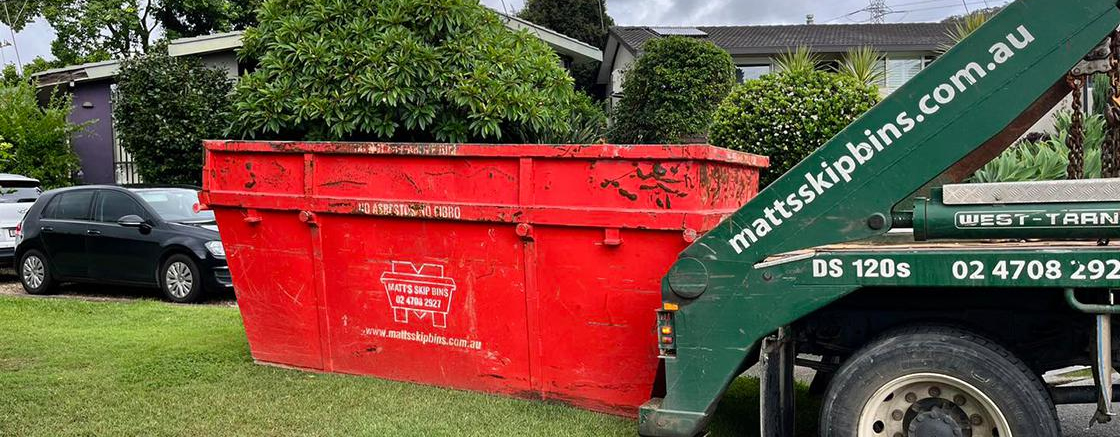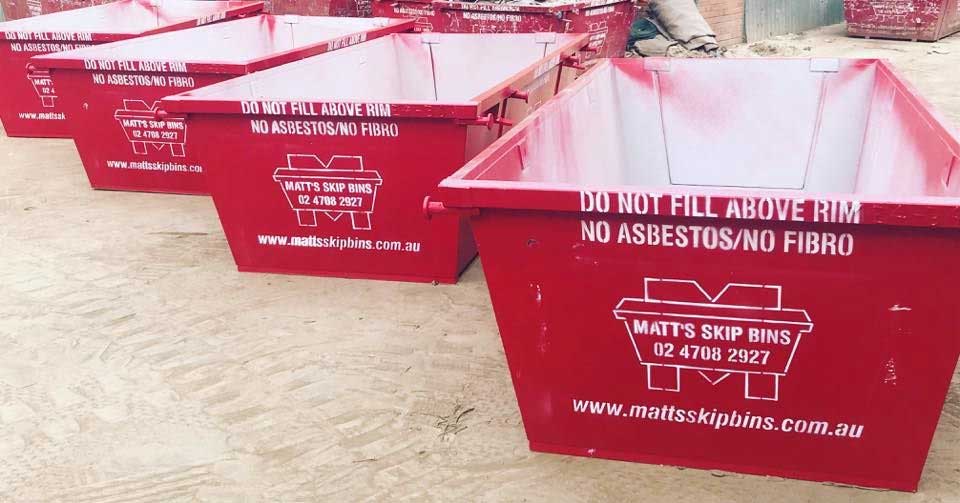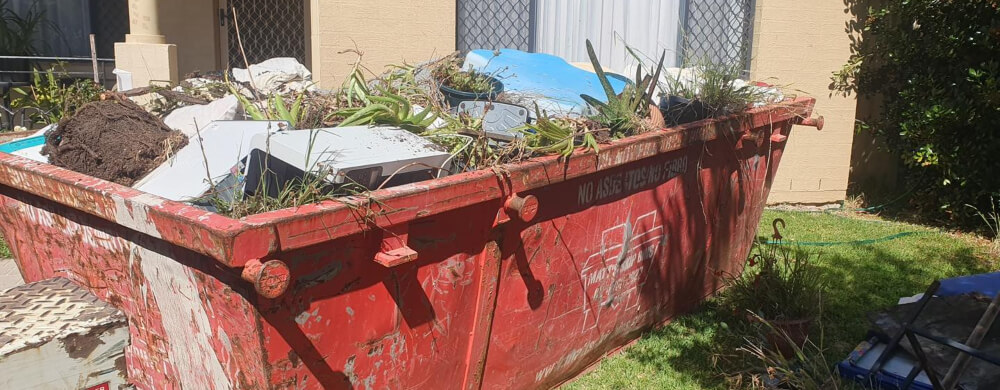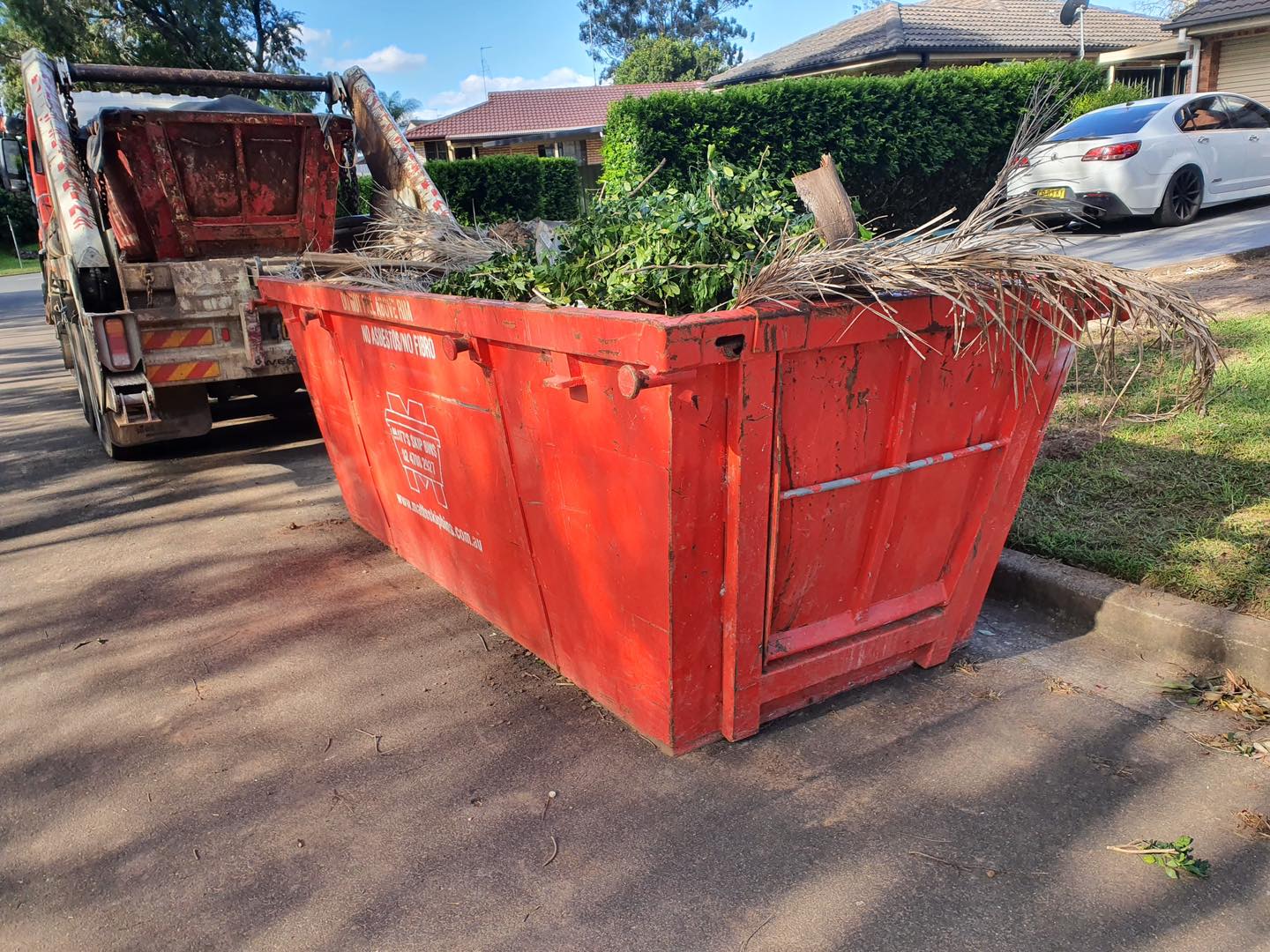
18 Sep • 5 min Read Do You Need Separate Bins for Building and Garden Waste?
When you’re tackling a home project, rubbish can pile up fast. Maybe you’re pulling out an old garden bed while knocking down part of the patio or clearing out the shed while giving the backyard a makeover. Suddenly, you’re not just dealing with one type of waste: you’ve got green waste, construction materials, and maybe even a bit of household clutter mixed in.
That’s where choosing the right skip bins makes all the difference. In this article, we’ll explain what waste goes where, when it’s OK to throw in some grass clippings with other waste types, and how separating green waste from building materials and household waste can benefit the environment through easier recycling.
Understanding Building Waste vs Green Waste
Green waste refers to leaves, branches, garden prunings, small amounts of untreated timber and grass clippings. It does not include large tree stumps, dirt, rocks or food waste.
These types of materials are collected together because they can be recycled and processed into valuable products like mulch and compost. This is why it’s so important that green waste bins are not contaminated with other materials that will make it difficult to recycle the ‘green goodness’.
For construction waste, a mixed building waste bin is suitable for non-hazardous waste, including concrete, plastic, bricks, tiles, timber and soil. Building waste bins can also accept green waste.
If it’s household waste you’re looking to dispose of, like clothes, furniture, electronics, toys or appliances, a general waste bin is the best option. These types of skip bins can also accept light green waste. So, if you’re moving house, for example, it’s OK to throw the grass clippings in on top of the rubbish once you’re done.
If you’re looking to get rid of large amounts of soil and clay, a dirt and clay skip bin is ideal, as these materials are easily reused – but only if they are free from contaminants like grass and other green waste.
Skip bins cannot accept hazardous materials like asbestos waste, paint, oil, chemicals, gas bottles or fire extinguishers.
Why You Might Need Separate Bins
For projects with different types of waste, hiring a few different bin types is a great idea because when you separate materials into those that are recyclable and those that go to landfill, it makes the recycling process much more efficient.
Diverting materials from landfill and sending them to be composted or recycled instead is also a much eco-friendlier approach to waste disposal, which is something we at Matt’s Skip Bins support wholeheartedly.
When You Can Combine Waste
You can mix garden waste with other waste when using a general waste bin, which accepts light green waste along with household rubbish. Green waste can also be mixed in building waste bins, making them a versatile option for mixed renovation projects.
Local Rules & Regulations in Australia
In most areas of Australia, including where we operate in Western Sydney, skip bins are regulated by local councils. For waste type allowances and rules regarding permits and placements, you should contact your local council before booking a skip bin.
Practical Tips for Waste Separation
To prevent accidental contamination of your specific type of skip bin, you might like to try organising similar waste types on-site before placing them in the skip. By sorting waste first, you can pack your skip more efficiently and maximise its capacity.
You can also attach removable, self-adhesive labels to the skip bins to help family members or various workers on a job site identify which bin is for what. Use large picture printouts to prevent mix-ups. For example, photos of concrete and bricks on a building waste skip and pictures of trees and leaves on the greens-only skip.
Benefits of Doing It Right
By only placing what’s allowed in each type of skip bin, you can ensure compliance with waste disposal regulations, particularly regarding the disposal of hazardous materials like asbestos, paint and chemicals. These hazardous materials require specialised handling and disposal, which skip bin companies don’t normally deal with.
How to Choose the Right Bin for Each Waste Type
As well as assessing what type of rubbish you have to dispose of so that you can choose the right type of skip bin, you’ll also need to think about the volume so that you can pick the right-sized skip for the job.
Matt’s Skip Bins offers bins from 2 cubic metres to 10 cubic metres, and we have a handy guide on our website to help you choose the right size for you.
FAQs
Can you put green waste in a normal bin?
You can put green waste in our general waste bins, but if you have a large amount to dispose of, you might be better off choosing a green waste bin instead.
Why is it necessary to separate waste into different bins?
By sorting waste effectively, much of what goes into your skip bin can be recycled more easily.
Can you put garden waste in a green bin?
Yes, you can put garden waste in a green bin. Local councils provide green-lidded wheelie bins for this purpose. However, if you have a large amount of waste, a green waste skip bin is the way to go.
Why do we have separate bins?
Separate bins allow for items to be recycled wherever possible, diverting it from landfill.
Can I put soil in a green waste bin?
No, you cannot put soil in a green waste bin. If you need to dispose of soil, hire a dirt and clay skip bin.
What happens if I mix green and building waste?
Green waste can be mixed with building waste in building waste bins. If you’re primarily disposing of green waste, a dedicated green waste bin ensures the most efficient recycling process.
Is there a fine for incorrect waste disposal?
If you incorrectly dispose of hazardous waste materials in the wrong bin, you may be charged a fee by your skip bin hire company for specialised handling requirements.
Get Your Waste Sorted the Right Way
Do you need separate bins for building and green waste? If you have a large amount of garden waste to get rid of, then a green waste bin is ideal for the most efficient recycling process. However, green waste can also be disposed of in building waste bins, making them a flexible option for mixed projects.
For more information on the best type of skip bin for your project, call Matt’s Skip Bins today on (02) 4708 2927, and our friendly team will help you choose the perfect bin for your needs.




